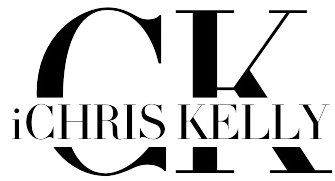In the realm of healthcare, the concept of connected care is reshaping traditional models of medical treatment and management. With the advent of smart health solutions, patients and healthcare providers alike have access to a wealth of data and connectivity tools that enable seamless communication, remote monitoring, and personalized care delivery. From wearable health trackers and remote patient monitoring devices to telemedicine platforms and AI-driven diagnostic tools, these innovative solutions hold the potential to revolutionize medical outcomes and enhance the quality of care for patients around the globe. In this exploration of connected care, we delve into the transformative impact of smart health solutions on medical outcomes, examining their role in improving patient outcomes, enhancing clinical decision-making, and fostering a more patient-centered approach to healthcare delivery.
Understanding Connected Care:
Connected care refers to the use of digital technologies and connectivity tools to facilitate communication, collaboration, and information exchange between patients and healthcare providers. By leveraging smart health solutions, such as wearable devices, mobile apps, and telemedicine platforms, connected care enables continuous monitoring, remote consultations, and real-time data sharing, thereby enhancing the coordination and delivery of healthcare services.
Improving Patient Outcomes:
One of the primary goals of connected care is to improve patient outcomes by enabling early intervention, personalized treatment plans, and proactive management of chronic conditions. Through remote monitoring and real-time data collection, healthcare providers can track key health metrics, identify changes in patient status, and intervene promptly to prevent complications or exacerbations. Additionally, connected care empowers patients to play an active role in their own care, fostering greater engagement, adherence to treatment regimens, and ultimately, better health outcomes.
Enhancing Clinical Decision-Making:
Smart health solutions offer valuable insights and decision support tools that enable healthcare providers to make more informed clinical decisions. By aggregating and analyzing patient data from multiple sources, such as wearable devices, electronic health records, and diagnostic tests, connected care platforms can generate actionable insights, predictive analytics, and treatment recommendations tailored to individual patient needs. This enhances the efficiency and accuracy of clinical decision-making, leading to more effective treatment strategies and improved patient outcomes.
Fostering Patient-Centered Care:
Connected care promotes a patient-centered approach to healthcare delivery by prioritizing the needs, preferences, and values of individual patients. Through telemedicine consultations, virtual care visits, and remote monitoring, patients have greater access to healthcare services, regardless of geographic location or physical mobility. Moreover, connected care platforms facilitate communication and collaboration between patients and providers, enabling shared decision-making, care coordination, and continuity of care across different settings and care teams.
The Future of Connected Care:
As smart health solutions continue to evolve and integrate new technologies, the future of connected care holds tremendous promise for improving medical outcomes and transforming the healthcare experience. From AI-driven predictive analytics and remote surgical assistance to virtual reality rehabilitation and personalized medicine, the possibilities for connected care are endless. By harnessing the power of smart health solutions, healthcare providers can deliver more efficient, effective, and patient-centered care, leading to improved medical outcomes and better overall health for individuals and communities worldwide.
Conclusion:
Connected care represents a paradigm shift in healthcare delivery, leveraging smart health solutions to enhance communication, collaboration, and information exchange between patients and providers. By promoting early intervention, personalized treatment, and patient-centered care, connected care holds the potential to improve medical outcomes, enhance clinical decision-making, and ultimately, transform the healthcare experience for patients and providers alike. As we continue to embrace the principles of connected care and harness the power of smart health solutions, the future of healthcare holds limitless possibilities for improving outcomes and advancing the well-being of individuals and communities around the globe

